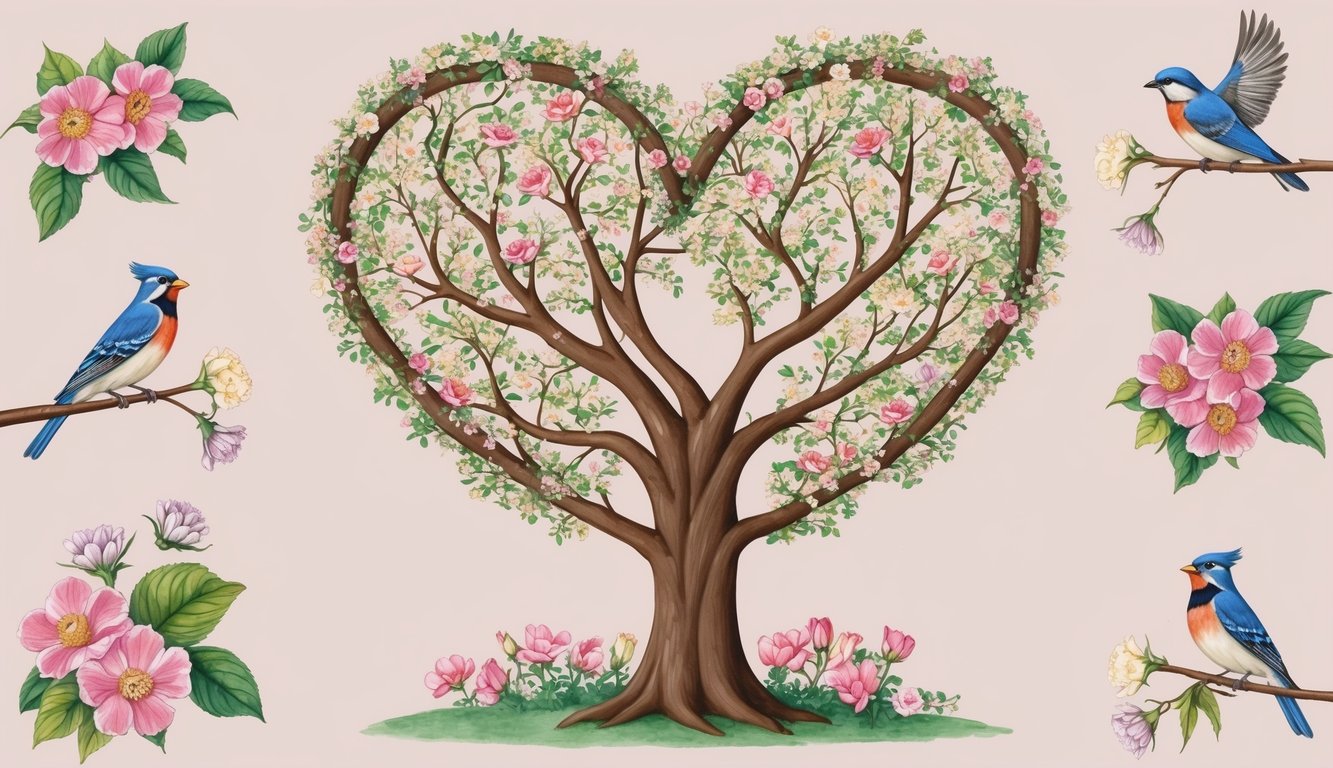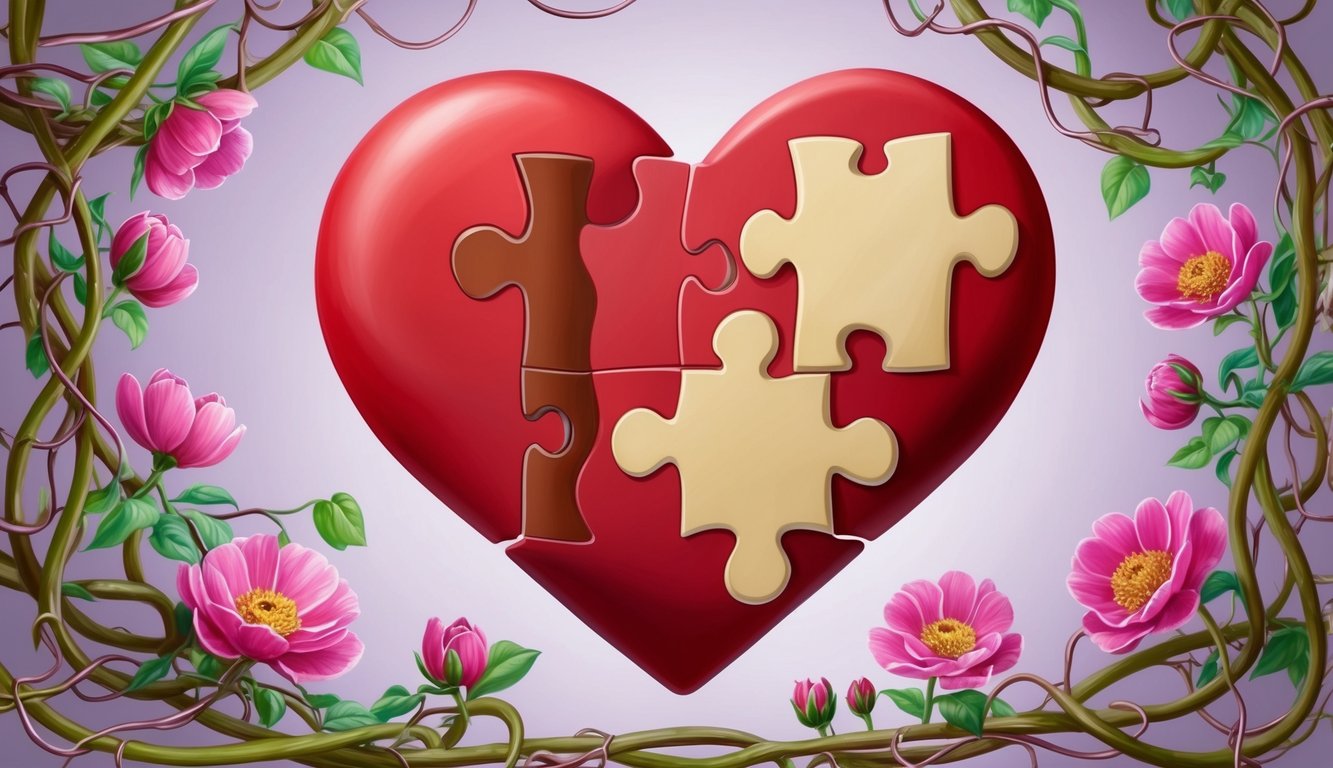Don’t Miss Out On This Unique Astrological Opportunity
Are you tired of spinning your wheels and getting nowhere? Simply put, you’re out of sync: you’re out of alignment with your astral configuration.
But: there’s a kind of map that can help you reclaim your alignment. Think of it as your own personal blueprint to success and happiness: a blueprint that will help you live your most amazing life.
Get started here.
Love is a complex and powerful emotion that we all experience in different ways.
Its definition can vary greatly depending on culture, context, and personal experiences.
At its core, love is a deep affection or concern for others that can manifest in many forms.
This fundamental part of human life invites endless exploration into its various types and expressions.
Understanding love means recognizing its many sides, including the different ways it shows up in our lives.
You might find love in the tender bond between parents and children, the passionate connection with a partner, or the comforting feeling of being around friends.
Each form of love brings its own challenges and strengths, influencing our behavior and emotional well-being.
Delving into how love is expressed across cultures reveals fascinating insights into its universal impact on human relationships.
While some cultures celebrate love with grand gestures, others may highlight subtle, everyday acts of caring.
This diversity enriches our understanding of love, emphasizing its role as a binding thread in human society.
Key Takeaways
- Love is a deep affection present in various relationships.
- It appears in different forms with unique expressions.
- Cultural variations offer diverse ways to experience love.
The Fundamentals of Love

Love is a rich and complex emotion that plays a significant role in our lives.
It can manifest in various forms, from romantic relationships to the bonds we share with family and friends.
Love’s psychological and biological aspects provide a deeper insight into its nature.
Love as a Multifaceted Emotion
Love is not just a single feeling.
It can be a mix of emotions like affection, attachment, and compassion.
Romantic love often includes passion and intimacy, while familial love might be about unconditional care.
When you love someone, you may feel drawn to them and want to protect and support them.
Love can bring happiness and joy, affecting your overall well-being and perspective on life.
Love Across Different Relationships
In romantic relationships, love involves passion and commitment between partners.
You might feel a strong emotional and physical connection, often yearning to be close.
Beyond romance, love is essential in family bonds, where you might experience unconditional love and support for family members, like parents, siblings, and children.
Friendships also thrive on love through shared experiences and mutual caring.
Each relationship brings different nuances of love, reflecting the unique roles people play in your life.
The Biological and Psychological Perspectives
Biology and psychology offer insights into love.
Hormones like oxytocin and dopamine play roles in attachment and pleasure, impacting how you feel and connect with others.
Psychologically, love can satisfy the need for belonging and security.
These elements work together to create a bond that can be comforting and motivating.
When people experience love, they often find comfort, safety, and motivation to nurture these important connections.
Forms and Types of Love
Love comes in many forms, varying from passionate romance to deep friendship.
Understanding love involves exploring how it can be unconditional or tied to certain conditions, and how it is portrayed in literature and media.
Romantic vs. Platonic Love
Romantic love often involves deep attraction and longing, usually linked to physical or sexual attraction.
It can be intense and passionate, sometimes expressed through love letters or romantic love songs.
In contrast, platonic love is about friendship and a deep emotional connection without romantic or sexual components.
Platonic love is genuine and can be long-lasting, much like a steadfast friendship.
While romantic relationships may fade, friendships can endure and provide stable support.
Conditional and Unconditional Love
Conditional love is based on specific conditions or expectations.
You might feel loved only if certain criteria are met, like academic success or shared views.
In contrast, unconditional love is accepting and limitless.
It’s about valuing someone without expecting anything in return.
Parents often show unconditional love to their children, offering support no matter what.
While conditional love can feel restrictive, unconditional love offers freedom and acceptance.
Both types influence how you connect emotionally with others.
Unrequited love, where feelings aren’t returned, might seem conditional since it hinges on the hope of reciprocated feelings.
The Complexity of Love in Literature and Media
Literature and media offer rich portrayals of love’s complexity.
Classic love stories like “Romeo and Juliet” explore romantic love mixed with tragedy.
Love songs capture emotions and events in relationships, from happy beginnings to painful endings.
Movies often show the transformative power of love, highlighting how characters grow and change.
In books, love stories create deep connections with readers, illustrating both happiness and conflict in relationships.
Media often showcases the multifaceted nature of love, making it relatable.
From passionate eros in novels to touching moments in films, these portrayals remind you that love is diverse and complex.
Expressions and Cultural Variations of Love
Love is expressed in diverse ways around the world, from physical gestures to spiritual practices.
Different cultures have their own unique ways of showing affection and appreciation that reflect deep-rooted beliefs and values.
Global Expressions of Affection and Intimacy
When it comes to expressing love, cultural traditions vary widely.
Around the globe, gestures like hugs, kisses, and hand-holding symbolize affection.
In some cultures, such as in many Latin countries, a kiss on the cheek is a common greeting that shows warmth and care.
Elsewhere, you might find bowing or handshakes as a sign of respect and liking.
Cultural norms shape these intimate interactions in interesting ways.
For example, in Japan, public displays of affection are more reserved, reflecting values of modesty and respect.
In many African cultures, a communal sense of care and enjoyment is shown through shared meals and dances, expressing love as a collective experience.
The way people exhibit tenderness and devotion in relationships is deeply influenced by their cultural backgrounds.
Love in Rituals, Religion, and Philosophy
Love is a profound theme in many rituals and religious practices.
In Hinduism, the “Bhakti” tradition emphasizes love and devotion to deities as a path to spiritual fulfillment.
This form of worship aims to cultivate a deep, personal connection with the divine.
Christianity views love as a virtue and a central tenet, often celebrated through rituals like Communion, which personify the idea of sharing and sacrifice.
In philosophy, love is a key area of exploration.
For instance, Ancient Greek thinkers identified different types of love, such as “Eros” for romantic love and “Agape” for selfless, unconditional love.
Cultural beliefs and historical influences continue to shape how communities express and perceive love, making it a fascinating cultural phenomenon.
Challenges and Impact of Love

Love brings joy, connection, and meaning to your life.
At the same time, it can introduce challenges like dealing with unreciprocated feelings or managing the emotions tied to relationships.
It plays a crucial role in enhancing personal well-being and influencing societal dynamics.
Navigating Difficult Emotions and Unrequited Love
Love isn’t always smooth sailing.
You might face unrequited love, where your feelings aren’t returned.
This can lead to feelings of loneliness, frustration, and sadness.
Such one-sided affection often highlights emotions like jealousy and infatuation.
Jealousy can arise when you feel insecure or worry about losing someone.
Infatuation, or “love at first sight,” can seem thrilling but often lacks deeper understanding.
Both can add stress and impact your emotional health.
Learning to navigate these emotions helps you maintain a healthy and balanced heart.
The Role of Love in Personal Well-Being and Society
Love is pivotal for your well-being.
It positively affects your happiness and quality of life.
Strong relationships offer support, reducing stress and improving overall health.
Commitment in relationships builds trust and safety, boosting your sense of belonging.
In society, love fosters compassion and cooperation, contributing to social harmony.
Looking for love and maintaining relationships promote personal growth and societal stability.
Connecting with others enriches your life, making it more rewarding and meaningful.
Strong relationships require effort, communication, and understanding to thrive over time.
Exploring the 1 Corinthians 7 meaning can provide insight into the importance of commitment and mutual respect in relationships, guiding individuals toward deeper connections.
By nurturing love and fostering meaningful bonds, people create a supportive environment that enhances both personal fulfillment and collective well-being.
Frequently Asked Questions

Love is one of the deepest emotions that can be defined differently by psychology, experts, and dictionaries.
It plays a vital role in relationships and comes in various forms.
What does psychology say about the definition of love?
Psychology views love as a complex and multidimensional concept involving elements like intimacy, passion, and commitment.
Researchers often explore how love activates brain areas that create feelings of happiness and connection.
What is considered the best explanation for the feeling of love?
Many experts point to love as a combination of emotional and physical attraction.
It is often seen as an intense feeling of deep affection that motivates people to care for and support each other.
How does the Oxford dictionary describe love?
The Oxford dictionary defines love as a strong feeling of affection, typically towards a family member, friend, or romantic partner.
It emphasizes the emotional ties that bond people together.
How would you define love in the context of a relationship?
In a relationship, love means sharing a deep emotional bond marked by trust, respect, and mutual commitment.
Partners continuously choose each other, working together through the ups and downs of life.
What are the various types of love recognized by experts?
Experts often categorize love into types like platonic love, which involves deep friendship, and romantic love, which includes passion and intimacy.
There is also self-love, essential for healthy relationships.
What is the most profound meaning attributed to love?
The most profound meaning of love might be its power to connect people on a deep emotional level, providing support and happiness.
Love inspires people to grow and evolve together.



